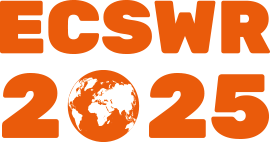TANJA KLEIBL
TOPIC:
BREAKING SILENCE AND ENHANCING SOLIDARITY: RESULTS FROM TRANSFORMATIVE RESEARCH
BIO
Tanja Kleibl currently holds a Research Chair in Participatory Action Research (PAR) at the Technical University of Applied Sciences Würzburg-Schweinfurt (THWS). She is also Research Associate at the University of Johannesburg and Director of the Master's Programme "International Social Work with Refugees and Migrants” (MRM). Her main research and teaching promote knowledge and debate about discourses and concepts of sustainable development, global inequality, migration and mobility, civil society as well as governance from postcolonial perspectives. Her emphasis is on social development and social work in the Global South whilst applying a political economy lens when it comes to enquiring differences and contestations in the Global North. She brings together 25 years of extensive research, teaching and practice experiences in different positions, within the broad areas of development cooperation, social work and migration.
ABSTRACT
The postcolonial world order, characterized by systemic multiple crises (inequality, climate crises, worsening poverty, exclusion and conflict) demands urgent structural changes in the political economy and requires social-ecological transformation. The expansion of capitalism and neocolonialism have caused the environmental disaster and human displacement as anticipated from writers such as Polanyi in the 1940s. Whilst this is broadly recognized, responses are often non-emancipatory, assistance-based and humanitarian-oriented social development programmes, criticized by liberation pedagogues and postcolonial thinkers. They are carried out by Northern development agencies involving social workers, which practical methods include mainly casework and depoliticized community development. Whilst social workers in the Global North claim to work within a human-rights framework, towards emancipation and liberation, they rarely consider how the welfare state in the North limits the access to rights of people in the Global South and their interwovenness with the coloniality of power, being and knowing. Participatory Action Research (PAR) following a Freirean approach, follows the idea of breaking down colonial systems, embracing "collaborative ontologies” and local/indigenous knowledge to provide a platform for consciousness building and solidarity. Based on preliminary results of a development project, accompanied by PAR strategies in conflict affected Northern Mozambique, this contribution shares knowledge co-created with internally displaced and receiving families involved. Collective colonization of the Mind brought about a Mozambican postcolonial educational system, grounded in Western principles of objectivity, neutrality and supposedly unquestionable academic knowledge. Lines and spaces of synergies and tensions that emerged within and between the involved local groups and teams, as well as distant research participants with academic backgrounds, will be shared, leading to important questions about the role of Social Work in questioning postcolonial educational systems, privileges and social hierarchies. This foregrounds the immense need for sharing critical thinking and analysis through informal education and transformative research with silenced and marginalized groups.


